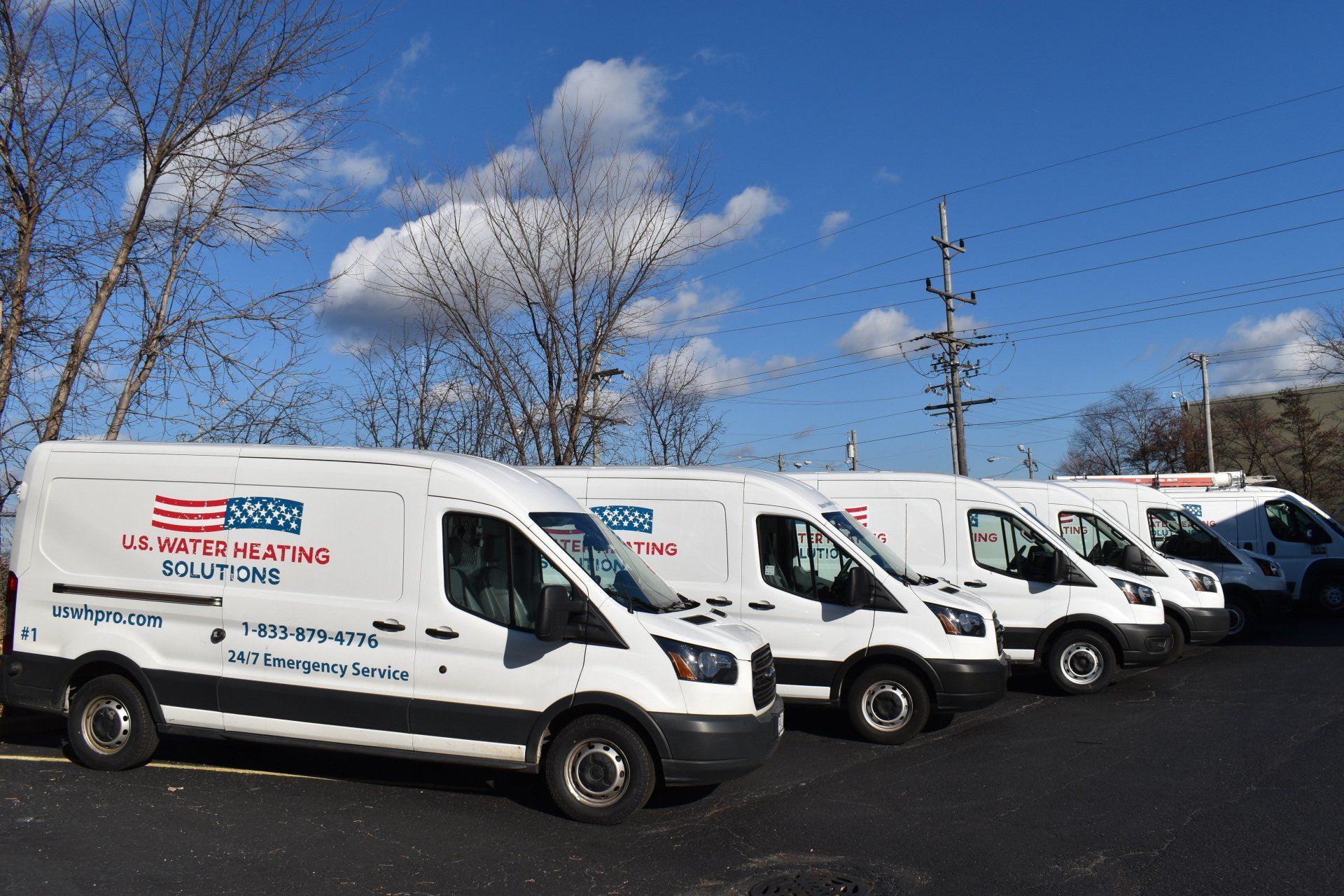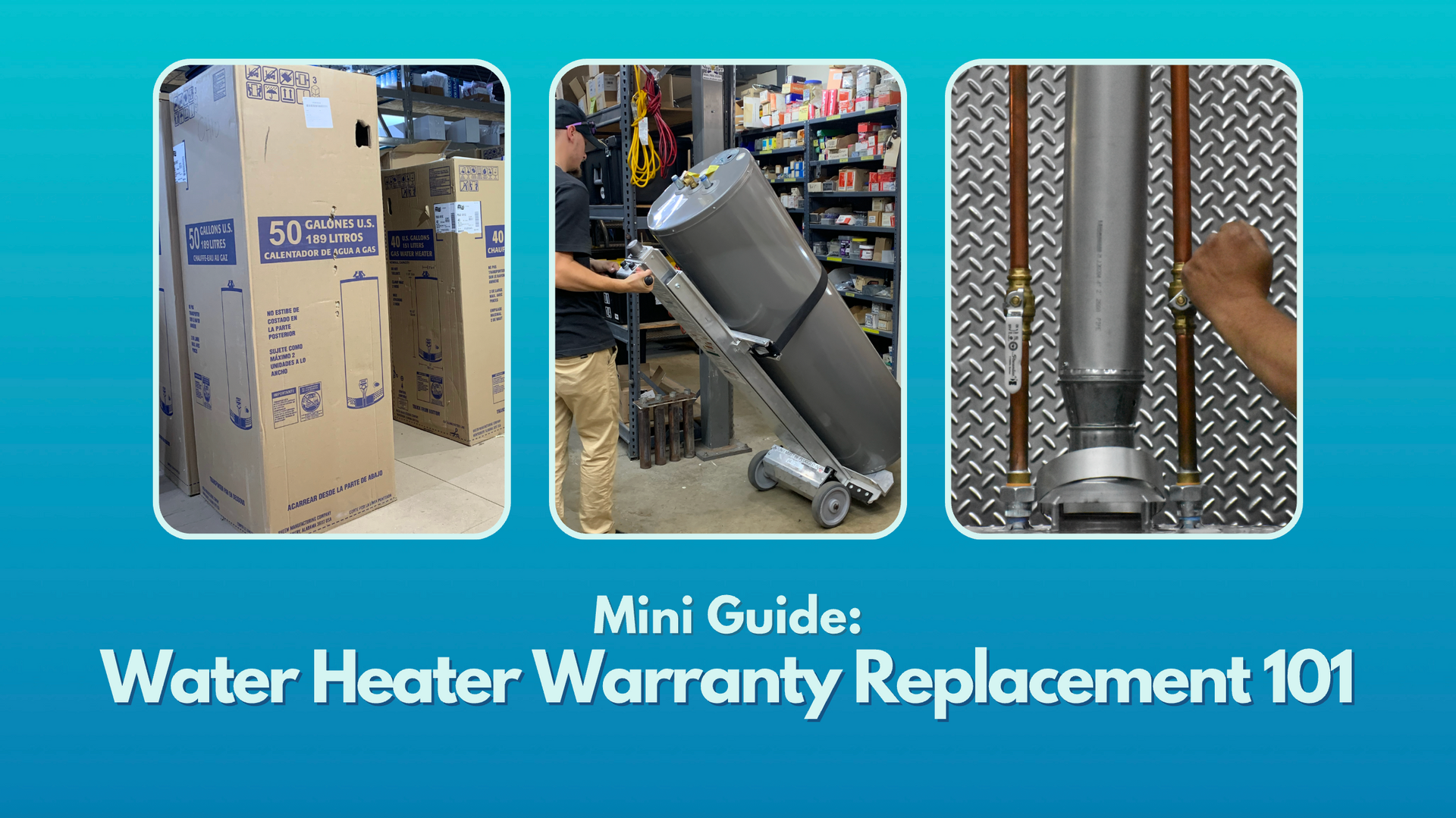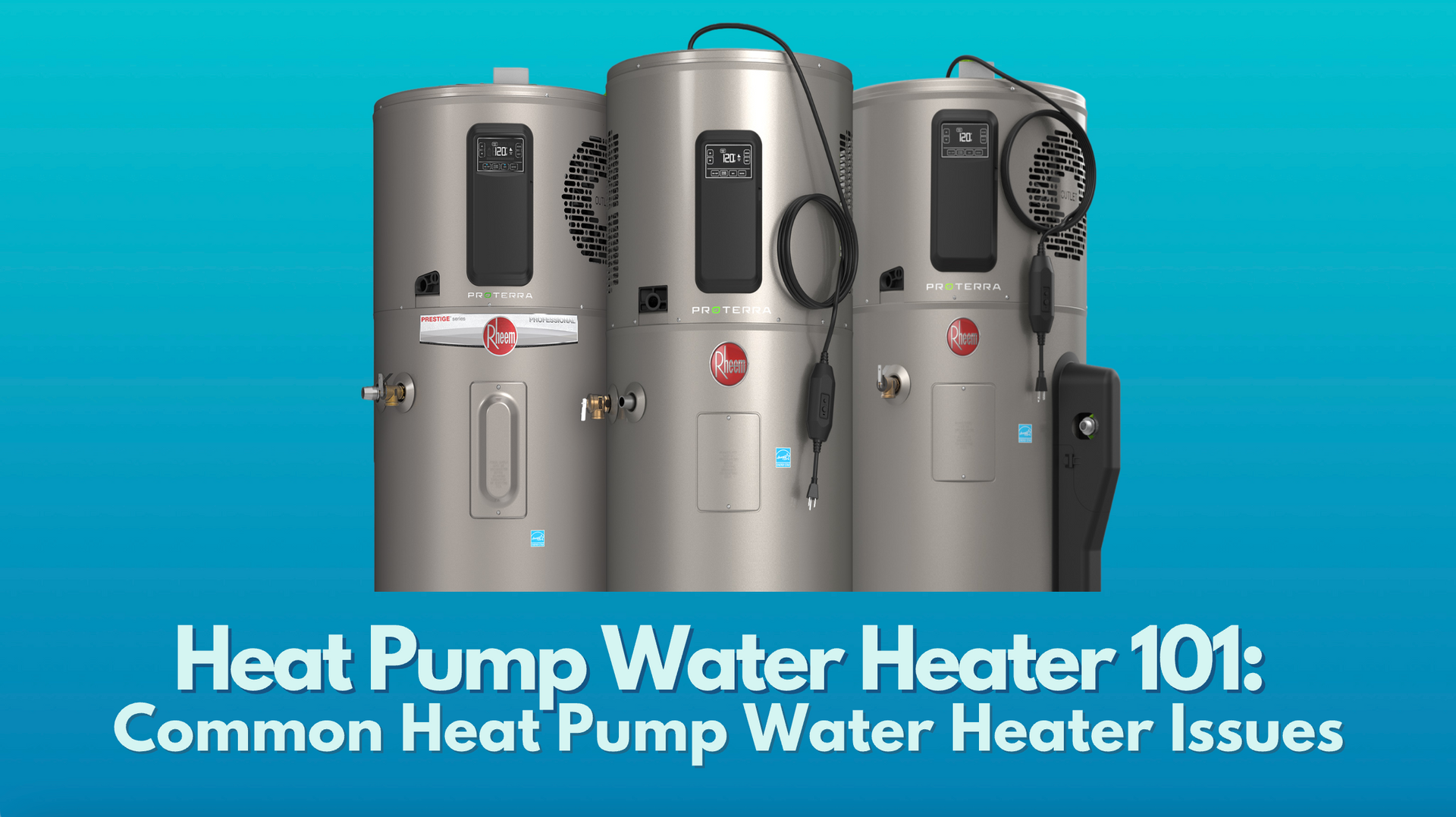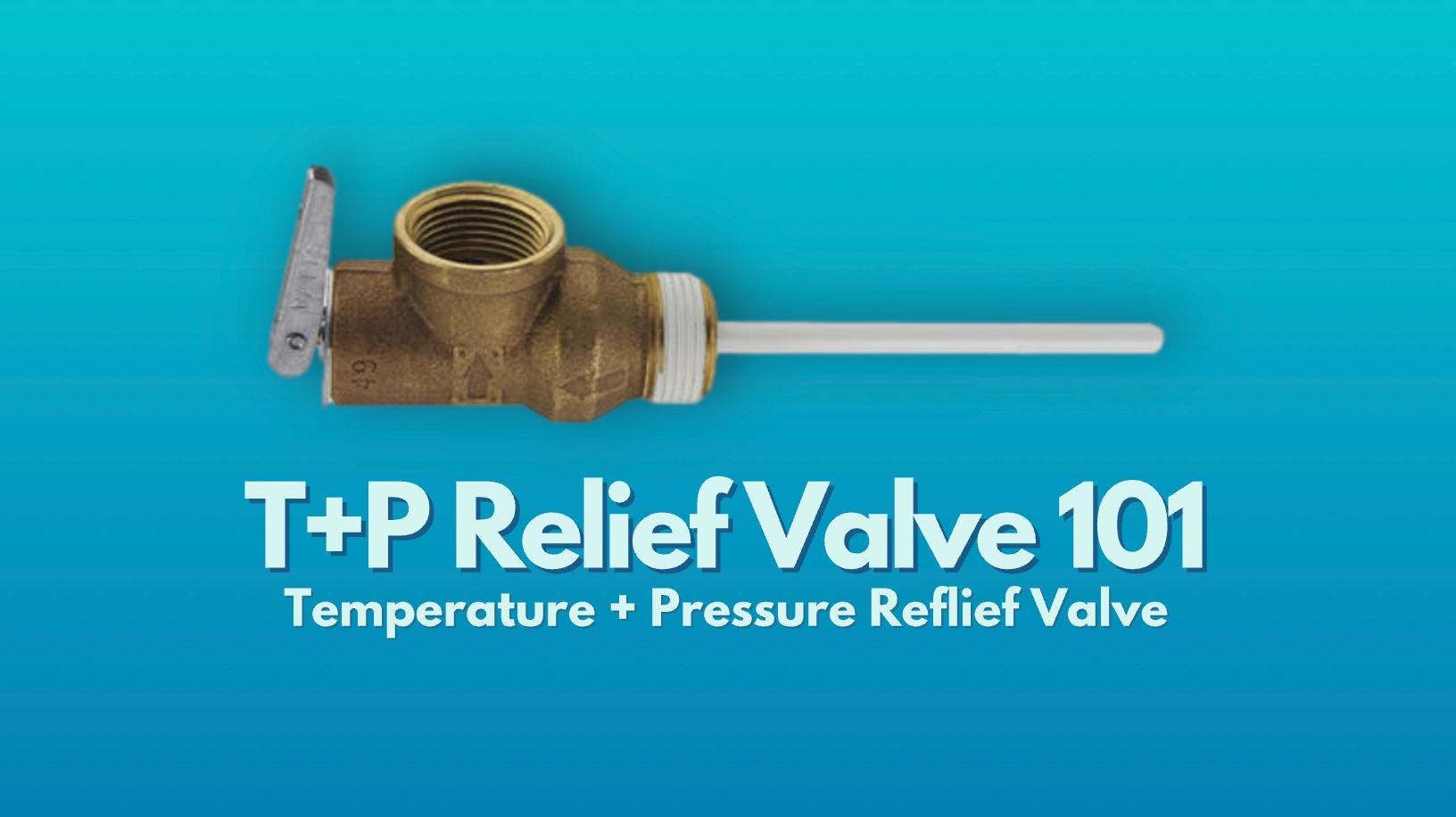6 Ways to Prevent Pipes From Freezing
Prevent Your Pipes From Freezing This Winter
A burst water pipe is a pipe that suddenly succumbs to intense stress, allowing all of the water to rush out of it quickly and in mass quantities. If a burst pipe occurs in your home, it will create a significant amount of damage.
More often than not, a burst pipe occurs as a result of a frozen pipe.
Water expands by 9% when it freezes. The pipes may not be able to accommodate the increased water pressure caused by the expansion. The ice expands to a size larger than the pipe, and the pressure levels increase, causing the pipe to completely give out.
Learn more about what you can do to prevent your pipes from freezing as well as what to do in case you do experience a pipe burst.
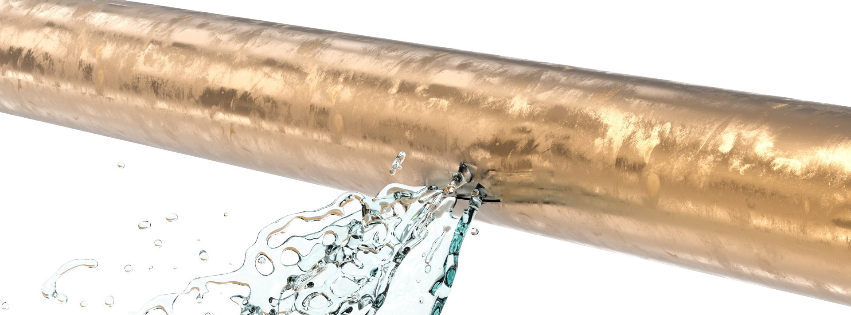
6 Ways to Prevent Your Pipes From Freezing This Winter
#1. Keep Your Water Heater Set at a Minimum of 55°F
Most of the time your water heater is on, it will be set much higher than 55°F. However, some people make the mistake of turning off the water heater if they go on vacation around the holidays only to learn a valuable (and expensive) lesson when they come home to intense water damage.
Even on vacation, always
leave the water heater set to at least 55°F. You should also leave your air conditioning set to at least 55°F as well. The heat prevents the attached pipes from freezing.
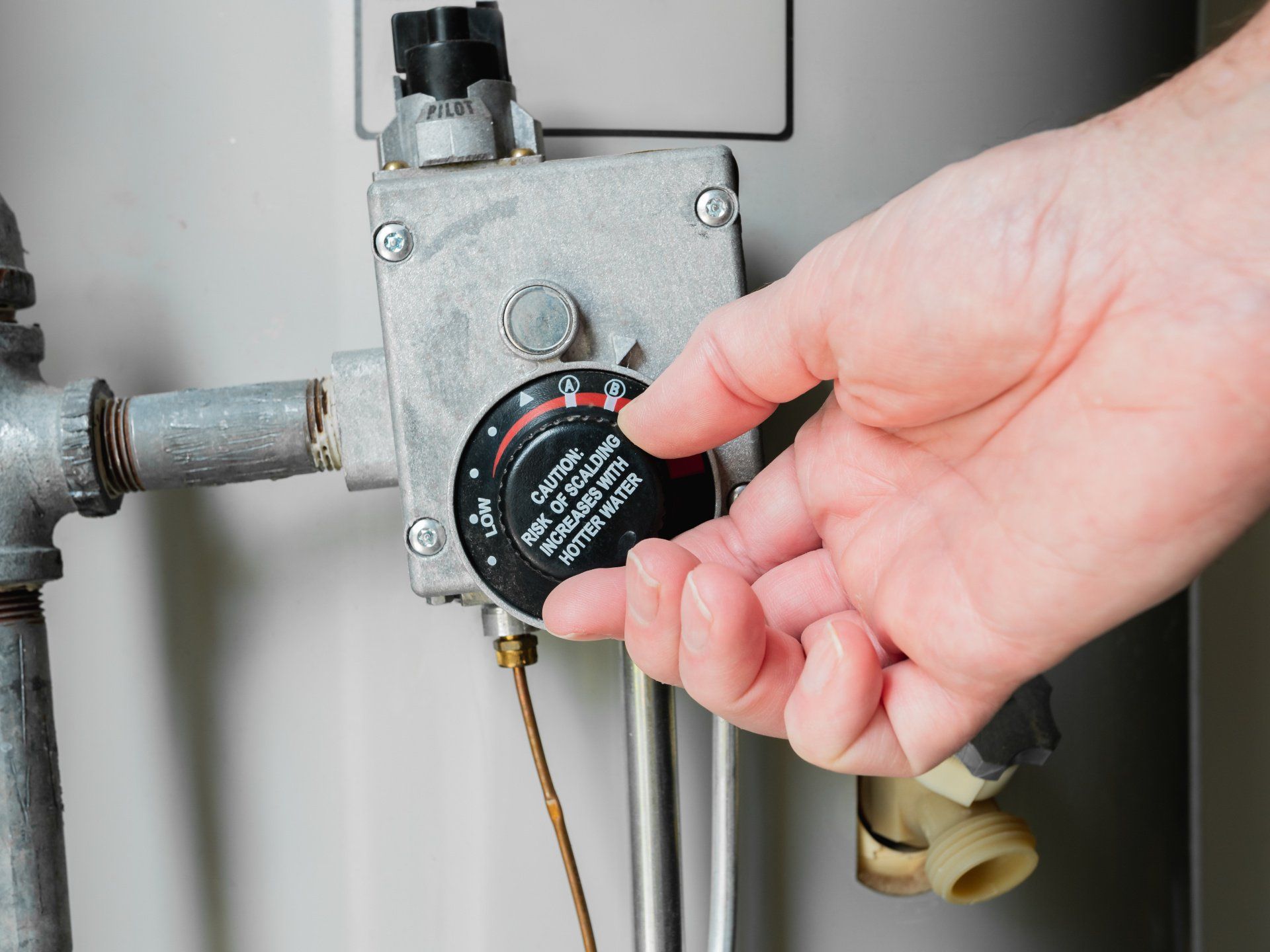
#2. Insulate Your Pipes
To prevent freezing, consider insulating exposed pipe. Uninsulated pipes absorb more cold air, especially if they are located in an unheated area. The cold air then reaches the water. When temperatures get cold enough, the cold air will cause the water to freeze.
You can find multiple types of pipe insulation, including
foam insulation pipe coverings and
insulated tape (also known as heat tape). You simply place the heating tape or insulation around the tubing material to prevent pipes from bursting.
Outdoor, unburied pipes are most vulnerable to freezing as they come into direct contact with cold air. Pipes in the attic, basement, and exterior wall are also vulnerable. Indoor pipes probably won't require insulation unless they run through an outside wall. Buried pipes will be buried deep enough to prevent freezing, but they should be inspected once a year to ensure that they can withstand the winter.
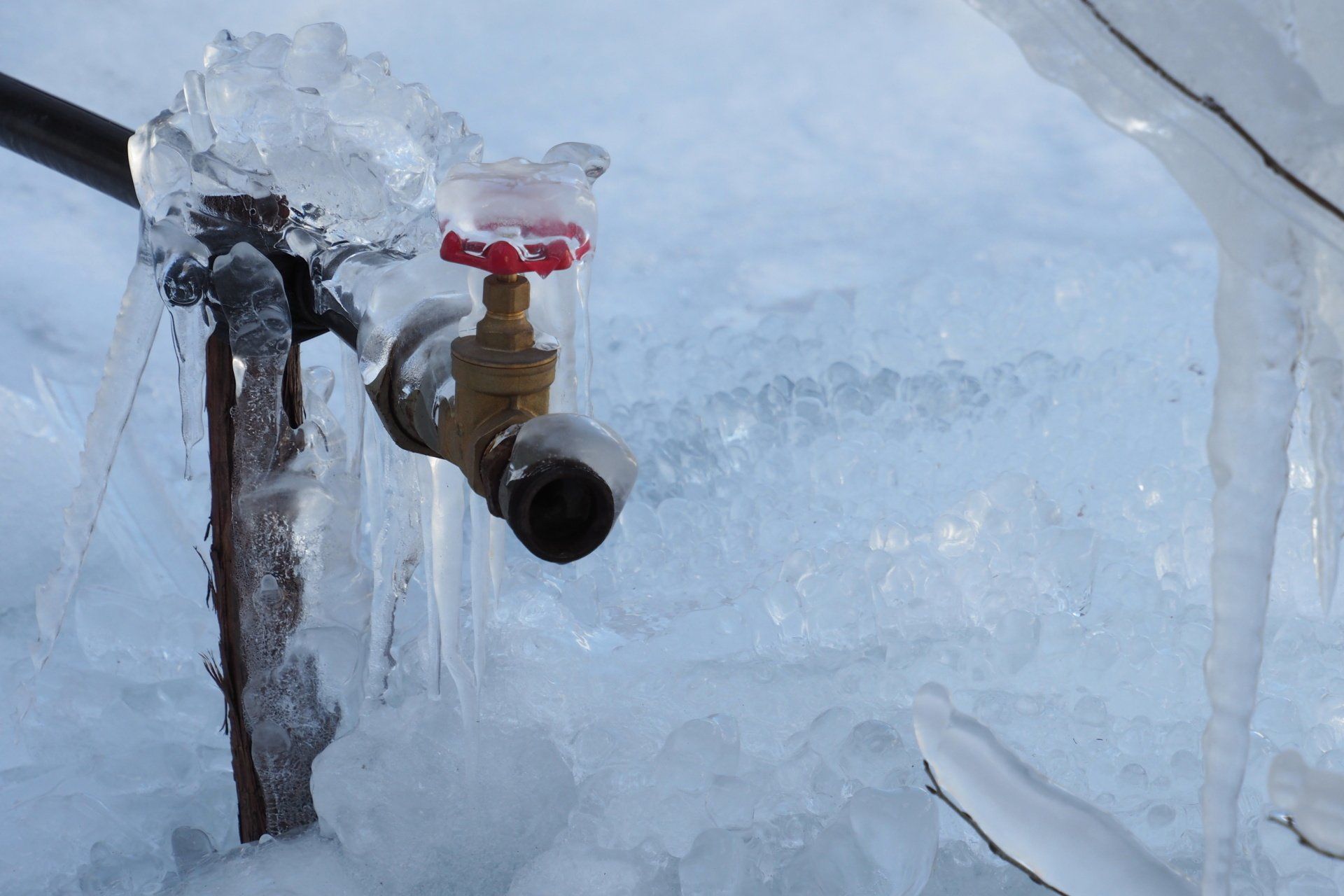
#3. Install Freeze Proof Spouts Outdoors
Outdoor spigots on the side of the house offer convenience, but they also absorb cold temperatures. Water that finds its way near the spigot can easily contribute to freezing pipes.
Place an insulated cover over the outdoor faucet. Alternatively, you can buy freeze proof faucets made for the outdoors.
Either way, turn off water to that outside faucet to prevent an accident. Be sure to drain the line of any water before it freezes.
#4. Drip Water From Your Faucet
One traditional and simple method to prevent freezing involves slightly opening a faucet in a remote area of the house to allow water to drip. The water must travel through the water supply lines then down the drain through the drain pipes, preventing the pipes from freezing.
While you may assume that you should drip hot water, it’s actually better to drip cold water, as cold water lines are more vulnerable than hot water pipes.
The only problem with this method is that it will raise your water usage (and your water bill).
#5. Open the Sink Cabinets
Another old school method, you can open cabinet doors to allow warm air from inside your house to reach your pipes.
However, be careful to remove any chemical
cleaners if you have small children or pets in your home. The open cabinet doors may also cause a tripping hazard.
#6. Keep Your Home Insulated
Protect your home from cold air by keeping it properly insulated.
One of the easiest ways to insulate your home is to close all of the doors and windows, including the garage door.
You will also add insulation in the exterior walls, ceiling, and basement.
How Do I Know If My Pipes are Frozen?
There are numerous signs to look out for if you suspect frozen pipes, including:
- Frost/ice on the pipes
- Bulging pipes
- No water coming from pipes due to ice blockage
- Odd noises
What to Do If You Experience a Frozen Pipe/Burst Pipe
A burst pipe can be a very frantic experience, but quick, logical thinking can minimize the damage. If you experience a burst pipe, take a breath, and use these tips to handle the situation.
Step One: Turn Off Water
The first thing you should do in the case of frozen or burst pipes is to turn off water to the house.
You will likely
find the main shut off valve to your home on the side of the house near the water meter. Verify the location of your shut-off valve in advance to help speed things along when you need to access it.
When you turn the water off, open the faucets inside the house to allow any remaining water to drain from the faucets so that it doesn’t freeze.
Step Two: Unfreeze or Repair the Pipe
If the pipe is frozen, you will need to unfreeze the frozen section of the pipe with warm air.
While using a blow torch or another source of an open flame may be tempting, avoid using an open flame to resolve the issue. You should also be careful not to use electricity around water, so be careful if you use a hair dryer or space heater to aid your efforts.
If the pipe bursts, it’s no longer usable. You will need to hire a plumber to replace the burst pipe.
After replacing the damaged pipe, you can restore water.
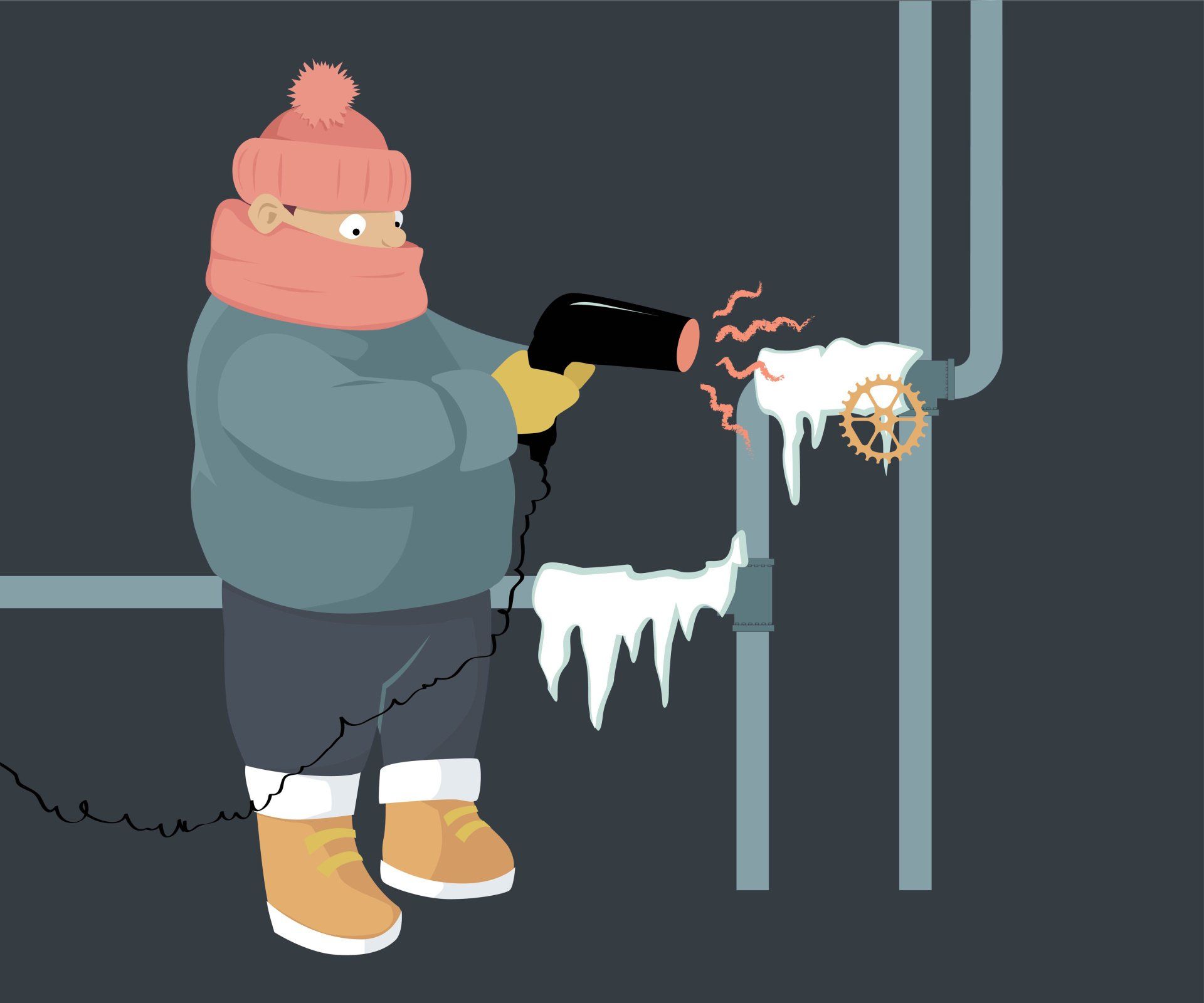
Step Three: Clean Up Water Damage
In the case of a burst pipe, there will be a significant amount of water damage. Carefully and safely dry the area. Damaged carpeting and wood will require replacement.
U.S. Water Heating Solutions
We at U.S. Water Heating Solutions understand the importance of reliable plumbing and hot water in the winter.
We offer
preventative maintenance to keep your water heater operating properly. We also offer
water heater repair if you have an existing problem. Prepare your water heater and the rest of your plumbing now, before you experience a burst pipe firsthand.
Contact U.S. Water Heating Solutions to get a quote for your water heater services today.
